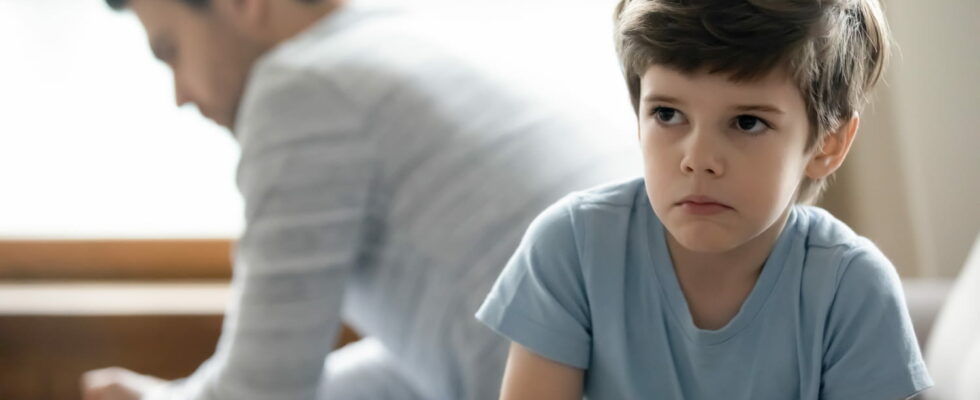“Terrible two”, adolescent crisis… These passages are often complicated for parents. The most difficult age, however, is not during these periods.
You’ve probably heard of the “terrible two”. It’s this moment around the age of two when a child asserts himself, notably by saying “no”. The child understands the “I” and begins to become aware of his own identity. This transition is difficult for parents, but is part of the child’s development. “Between 18 and 24 months, we enter a transition phase from baby to toddler,” explains psychologist Suzanne Vallières, in her book Psy-tricks for children aged 0 to 3, published in Éditions de L’Homme.
Another moment often dreaded: the adolescent crisis, which can occur between the ages of 12 and 19. During this period, the child begins the transition to adulthood. He is therefore often in search of independence and tends to detach himself from his parents. It is a phase of physical and psychological changes. This upheaval can lead to oppositional behavior towards parents, mood swings or even a need for isolation. If it is then necessary to know how to set limits, it is also necessary to demonstrate patience and understanding.

Although these two stages are often feared by parents, they are not the most difficult according to a study. We should rather look between the two. According to a survey conducted by OnePoll And Mixbookbased on 2000 parents surveyed in 2020, the age of 6 is one of the best according to the majority of respondents, unlike a period coming afterwards, considered much more difficult. The child becomes very disobedient and rebellious.
This is what the study called the “hateful eight”, which is much worse than the “terrible two” according to the majority of respondents. There are often many tantrums there: eight-year-old children are stubborn and not afraid to slam the door or roll their eyes to express their displeasure. This is also the phase where every chore seems like hell for the child. At this time, the body is evolving and preparing for puberty and the brain has almost reached adult size.
“The first years of primary school [plus précisément les âges de 8 et 9 ans] mark a growth spurt that is both mental and physical, and especially emotional,” says Mary Ann Little, PhD, a clinical psychologist with Motherly. Just after the age of reason, the child takes a turn. He asserts himself more and is looking for more freedom. He also tends to show his disagreement and unlike when he was younger, he will have something to argue with. It is a difficult, but classic period in the development of the child, who understands the society around him better and better. So you have to show courage and patience, again and again, to help them get through this.
